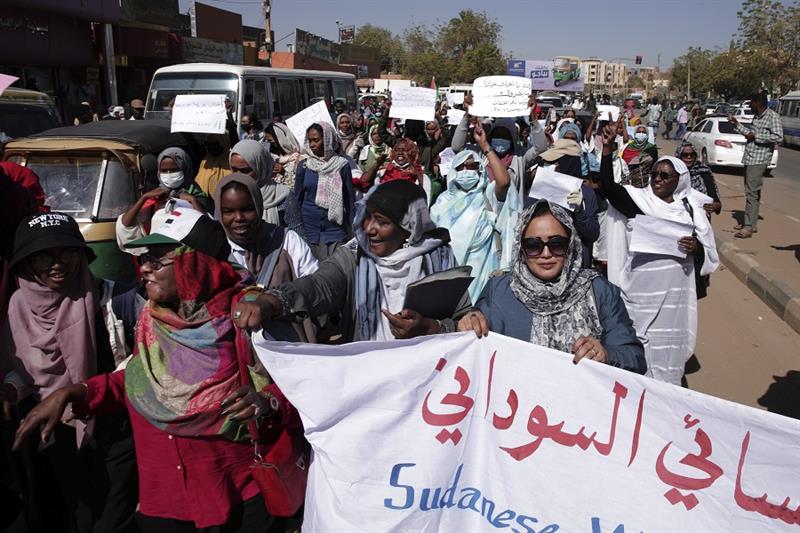
Women chant slogans protesting sexual violence, days after the U.N. human rights office called for an independent investigation into allegations of sexual violence including rape and gang rape during mass anti-coup protests in Sudan earlier this week, in the twin city of Omdurman, about 18 miles (30 km) northwest of the capital Khartoum, Sudan, Thursday, Dec. 23, 2021. AP
Khartoum's state governor has warned that security forces "will deal with those who break the law and create chaos".
Activists, who use the internet for organising recent mass demonstrations, had planned the latest in a series of street protests for Saturday -- two months on since generals launched their October 25 takeover.
Military chief General Abdel Fattah al-Burhan held civilian leader Prime Minister Abdalla Hamdok under effective house arrest for weeks, but reinstated him on November 21.
The move alienated many of Hamdok's pro-democracy supporters, who dismissed it as providing a cloak of legitimacy for Burhan's power grab.
Protesters online have called for fresh rallies, encouraging supporters with the slogans "no negotiations" with the army, and demanding "the soldiers back to barracks".
But bridges connecting Khartoum across the Nile river to the cities of Omdurman and North Khartoum were blocked since Friday evening.
Security forces also blocked the main streets in central Khartoum where the protest organisers were planning to hold the demonstrations.
Recent protests have seen thousands gather at key government buildings, including outside parliament, the presidential palace and the army headquarters.
Khartoum's governor warned that "approaching or attacking buildings of strategic sovereignty is punishable by law".
At least 48 people have died in crackdowns on protesters since the military takeover, according to the independent Doctors' Committee, with security forces firing live bullets and tear gas canisters.
Sudan, one of the world's poorest countries, has a long history of military coups, enjoying only rare interludes of democratic rule since independence in 1956.
Over 14 million people, a third of Sudan's population, will need humanitarian aid next year, according to the UN Office for the Coordination of Humanitarian Affairs, the highest level for a decade.
Short link: